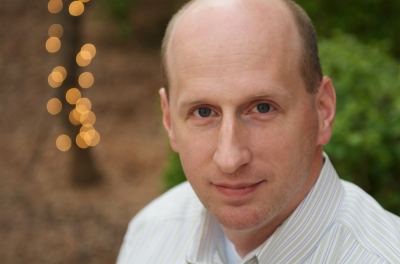The Ferguson Report Reminds Me Why I Became a Conservative

I grew up in a small town in Kentucky, the son of — at that time — McGovern Democrats. My dad was a math professor at the local college, my mom was a public-school teacher, and neither one of them had voted for a Republican in their lives — and had no intention to.
Me? As soon as I started learning about politics, I turned towards conservatism — dramatically — and started hectoring my parents. (Just after she pulled the lever for Mondale in 1984, I remember telling my mother that the moment she voted I'd felt a disturbance in the Force akin to that felt by Obi-Wan Kenobi at the destruction of Alderaan. She was not amused.) The change had nothing to do with youthful rebellion — after all, if it was standard for professors' kids to tack right, then Cambridge Massachusetts would be practically overrun with young Ted Cruz supporters — but rather two realities that were intruding upon my young mind.
The first, of course, was the Cold War and the Soviet threat. Without going into too many details, I thought détente was simply another word for appeasement, and found it incredible that some people actually argued that the right response to an expansionist totalitarian power was timidity and disarmament.
The second reason for the change was my experience with small-town government. It pushed me in a libertarian direction before I even knew what a libertarian was.
The public schools were dreadful. Focused on patronage more than education, the school system was a public jobs program that was better at promoting the athletic and social interests of the town's elite than prepping kids for work or college. I remember a brief run at starting a laughable "underground paper" at my high school, and the title of my first op-ed was "Who's Your Dad?" — focusing on the single-most important factor for making school teams or winning local scholarships. We trashed the paper before we even printed it, but the sentiment (and anger) was real. I certainly benefited from individual teachers going above and beyond the call of duty — taking an interest in a geeky kid who really, really liked to read — but the system itself was largely malignant.
And that malignancy has spread throughout the public institutions. Our local government's core mission was dispensing favors. If you were part of the local elite, the normal rules of life simply didn't apply. Speeding tickets? No problem. You need a conditional use permit? You got it! To this day one of the most satisfying events of my professional life was defeating the local zoning board in the first constitutional case of my career — winning the case after a local leader haughtily told my church client, "We can and will dictate how you worship."
In my town, if you were poor or lacked connections, "the rules" applied to you with a vengeance. After all, someone had to pay the city's bills. There was no escaping speeding tickets, zoning officials were ruthless, and each interaction with the unyielding authorities carried with it the threat of immediate escalation, sometimes without justification. A friend of mine was once beaten senseless by a local police officer after a traffic stop — all because he was dating the cop's ex-girlfriend. Because of this experience, I often shudder when I hear conservatives extolling the virtues of "local control" or "local authorities" — as if local officials are somehow inherently more virtuous than the feds. Government is prone to corruption at all levels — especially when under the hammerlock of one-party rule (the Democrats ruled my town). Make no mistake, I love my hometown, and I love the people in it, but that love has nothing to do with its government.
Reading the DOJ's Ferguson report took me back to the bad old days. It is the story of a small class of the local power brokers creating two sets of rules, one for the connected and another for the mass of people who are forced — often at gunpoint — to pay for the "privilege" of being governed. This is a very old story, and if the poor of Ferguson are overwhelmingly black, then it's inevitable that a government built on exploitation will disproportionately exploit black citizens. I have no doubt that there are some racists in Ferguson's leadership, but we also know that even black leaders will exploit black citizens in the cities they lead — setting up de facto rules that benefit the governing class at the expense of the poor. See, for example, Detroit.
It is entirely possible to believe (as I do) that the evidence indicates that "hands up, don't shoot" is a fiction, even a malicious fiction, while also believing that the evidence indicates that Ferguson's government was corrupt in exactly the way that government is typically corrupt.
We often take for granted the rule of law. If you are blessed to live in a town where the officials are relatively clean, or if you're among the class of people that officials fear to cross, then public institutions seem benign — helpful, even. But there are millions of our fellow citizens who live a different reality, under the authority of different kinds of public officials — officials who view them as virtual ATMs, regardless of their ability to pay. And when the government imposes that mindset on police officers, forcing men and women who are trained to respond to (and anticipate) the most violent incidents to essentially become the armed tax collectors of a corrupt system, then that government is unjust, and its officials must be made to feel the bite of the Constitution that they've willfully and continually abused.
This column was orginally published on National Review.



























